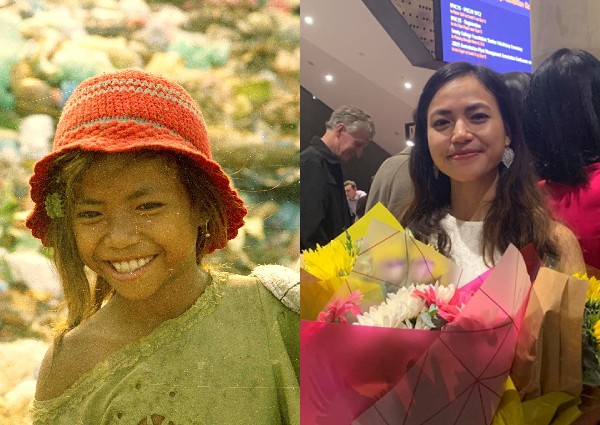Beating the odds: Cambodian girl who worked at garbage dump becomes college valedictorian

 PUBLISHED ONJune 18, 2019 8:55 AMBYKimberly Anne Lim
PUBLISHED ONJune 18, 2019 8:55 AMBYKimberly Anne LimShe had never gone to school until she turned 11.
Sophy Ron spent her days wading through Phnom Penh's pungent garbage dumps, breathing in toxic fumes, just to scavenge for scraps.
Years later, she completed her foundational year at Trinity College in Melbourne where she was named valedictorian.
The turning point for Sophy came when the non-profit organization Cambodian Children's Fund (CCF) rescued her from a garbage dump where she was made to work seven days a week in order to earn money for her parents.
CCF runs an education programme that includes educational facilities and satellite schools serving impoverished communities.
According to CCF, these communities, some of them springing up around garbage dumps, were once deemed "unreachable".
Today, the education programme helps over 2,000 students work towards a better future.
One of them is Sophy, who became the first CCF student to win a coveted full scholarship to Trinity College.
She finished her foundational year at the college last month, and looks forward to enrolling at the University of Melbourne to start her undergraduate studies.
"I was very excited but very nervous," Sophy said after her closing speech at her graduation ceremony.
"The event went very smooth. It was awesome."
[[nid:450261]]
While Sophy is a shining success story with a bright future ahead of her, issues of systemic poverty still remain in Phnom Penh.
The issue gained prominence in 2009 when the notorious Stung Meanchey Rubbish Dump received widespread media attention. The municipal garbage dump spanned 100 acres in Phnom Penh.
According to Small Step Project, there were 500 to 1000 people working on the dump, with at least half of them being children. After the media attention, Stung Meanchey was shut down but the city opened up a new rubbish dump on the other side of the city and the workers migrated over.
Outside of the dumps, it was also reported in 2016 that there are still many children who roam the streets, picking through rubbish and scavenging, earning as little as US$2.50 (S$3.40) a day.
Sonia Dias, a leading Brazilian waste expert, told The Guardian, "I often say that I don't think it's humane to have people working in an open dump."
"It's a violation of human rights. But, at the same time, you also have to consider that people have to earn a livelihood. You cannot adapt without providing some source of income for people."